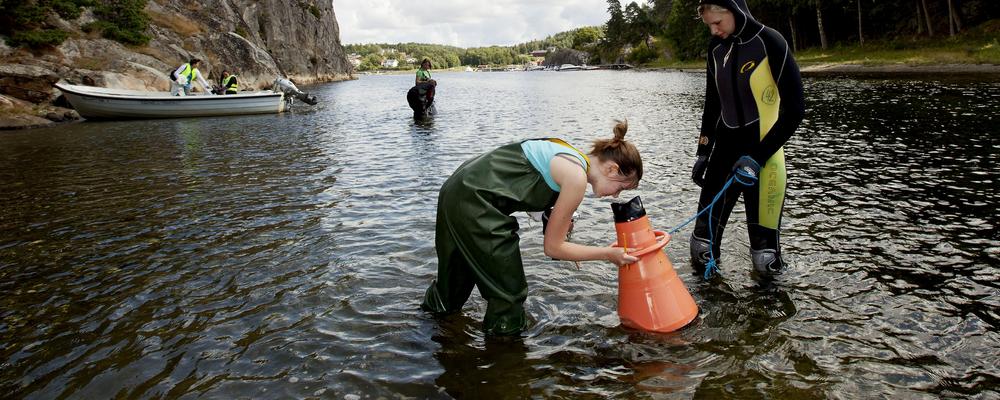
What is Marine Citizen Science?
Marine Citizen Science means that the public participates in research projects about the sea. For example, observing and reporting data, or helping researchers identify species. Marine Citizen Science is under rapid development and offers a new way to increase knowledge about the sea.
The production of knowledge for a more sustainable world is undergoing rapid change with the increasing interest and uptake of Citizen Science. Enhanced by the possibilities provided by a range of Information and Communication Technologies for novel forms of observation and interaction, Citizen Science offers a unique opportunity for a paradigm shift in the co-creation and application of knowledge, including marine knowledge.
Marine citizen science at the University of Gothenburg
The university’s marine research is investigating the serious changes that are already impacting the marine environment, it spans over several faculties at the university and is increasingly practicing Marine Citizen Science.
There is also an ‘explosion’ in high level appreciation of citizen science, globally, in Europe as well as in Sweden. A strong role is given to Citizen Science in the recommendations to the European Commission by the Horizon Europe Mission Board Healthy Oceans, Seas, Coastal and Inland Waters, and in the vision of the UN Decade of Ocean Science 2021-2023 . The Decade provides a global framework for research and action to support efforts to reverse the cycle of decline in ocean health and to “focus the global ocean community to plan for the next ten years in ocean science and technology to deliver, together, the ocean we need for the future we want!”
Research using Marine Citizen Science: On shore, near shore and off shore
Much of Marine Citizen Science current takes place on shore, for example people monitoring and collecting (plastic) litter on beaches, reporting stranding of marine mammals or observing sea shore life.
The near shore ocean is an area of huge importance: socially, economically and for its high biological productivity and diversity. Despite its great importance and its closeness, the near shore ocean is challenging to observe. Citizen scientists already make significant contributions by monitoring algal blooms; seals, seabirds and other marine species; water quality and microplastics, to name a few.
Marine citizen science also includes work in the offshore ocean, and even at great depths. This includes, for example, doing annotation and analysis of collected data and images from surface vessels or underwater robots.
Research about Marine Citizen Science
Aside from ‘doing’ Marine Citizen Science hands on, the University of Gothenburg also does research about Marine Citizen Science. It aims to better understand the connection that citizens have or attain with their (local) marine environment; and how Marine Citizen Science can help foster changes towards, or maintenance of, sustainable behaviours that are relevant at local as well as global scale. This contributes new knowledge and concepts to the field of Marine Citizen Science in particular as well as to Citizen Science and sustainability science more generally.